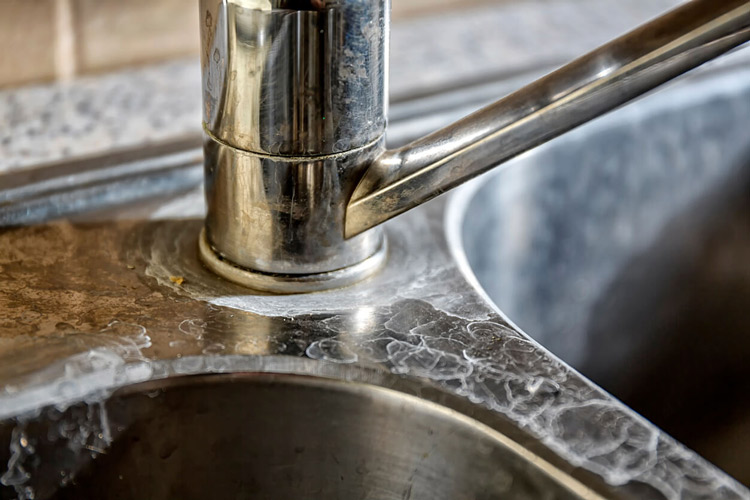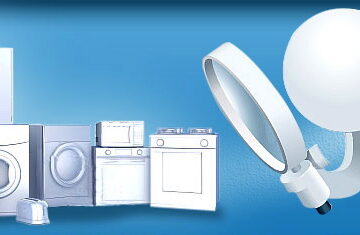Hard Water: 5 Signs to Look For

Hard water is common in American households. In fact, one study found that approximately 9 out of every 10 houses (90%) are affected by it.
What Is Hard Water?
It is basically water that has a high volume of dissolved minerals, especially calcium, iron, and magnesium. The jury is still out as to whether it contributes to any health issues. However, it’s indisputable that it can cause a lot of damage to a home’s plumbing system.
How can you know whether your home is affected? Here are 5 telltale signs to look out for:
1. Soap Scum
Soap scum is basically what you get when water evaporates and leaves behind a calcium deposit. The calcium and mineral ions in the water combine with the soap to create an insoluble compound. This compound then precipitates, leaving behind that unsightly white spot.
If you find that you are constantly scrubbing your shower, tub, sink, and other surfaces that regularly come into contact with water, then odds are that you’re dealing with a mineral problem in your water.
2. No Suds
Normally, when water reacts with soap, suds appear almost instantly. The reason why this happens is that soap molecules are partly hydrophilic and partly hydrophobic; in other words, one part likes water, and the other part doesn’t.
When water comes into contact with soap, the sides of these molecules that like water come towards the H2O molecules, and the sides that don’t like water stick outwards. As a result, a thin layer of air gets trapped in the middle of these soap molecules: a bubble!
However, when soap comes into contact with hard water, it’s a different story. The high concentration of dissolved minerals makes it much more difficult for soap to bubble. So if you find it difficult to make soap suds, the likely culprit is (you guessed it): water that’s too hard.
3. Dingy Laundry
Since water with dissolved minerals doesn’t play nice with soap, another common indicator that there’s a problem with your water supply is dingy laundry. If your clothes are dull, scratchy, or starting to wear out, it may be because your water is inhibiting the soap’s work as a cleaning agent. Moreover, high mineral content in water can be rough on fabric, and even leave stains on your clothing.
4. Clogged Pipes
Apart from the hygienic problems that dissolved minerals in water can cause, it is also a killer for your plumbing system. Mineral deposits can build up in your pipes and fixtures, and over time, these scaly buildups will restrict the flow of water in supply pipes, and even cause clogs in your drains. Even worse, these mineral deposits increase the risk of your pipes bursting one day from excess pressure.
5. Appliance Issues
Finally, if your water is hard, it can also create trouble for appliances such as washers, washing machines, and refrigerators. Limescale deposits from water can increase your energy bill by 25%, according to one estimate. Deposits can also restrict the water flow needed for your appliances to operate at peak capacity, and can even create a blockage in your water heater’s lines, which often results in a hefty repair bill.
If you’ve noticed one or more of these signs in the past few months, then you should consider the possibility that your home’s water is not soft enough. One excellent way to combat the effects of mineral-heavy water is to install a water softening system. At Passaic Bergen Water Softening, we offer water softening services and installation from experienced professionals at reasonable prices. Reach out to us today to learn more.



